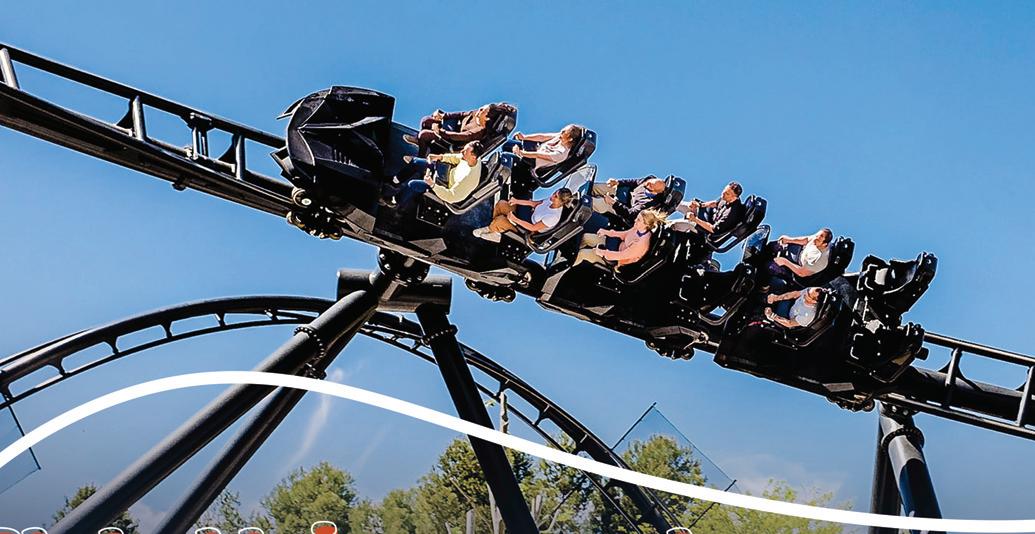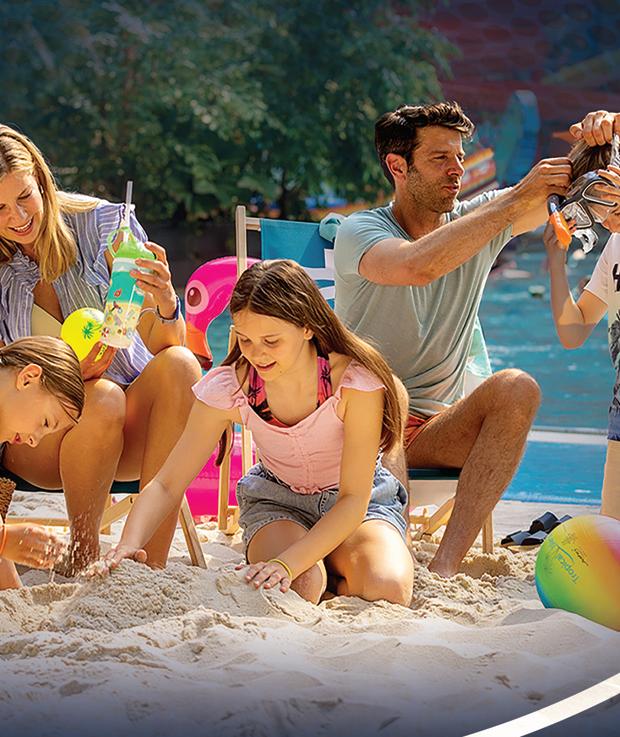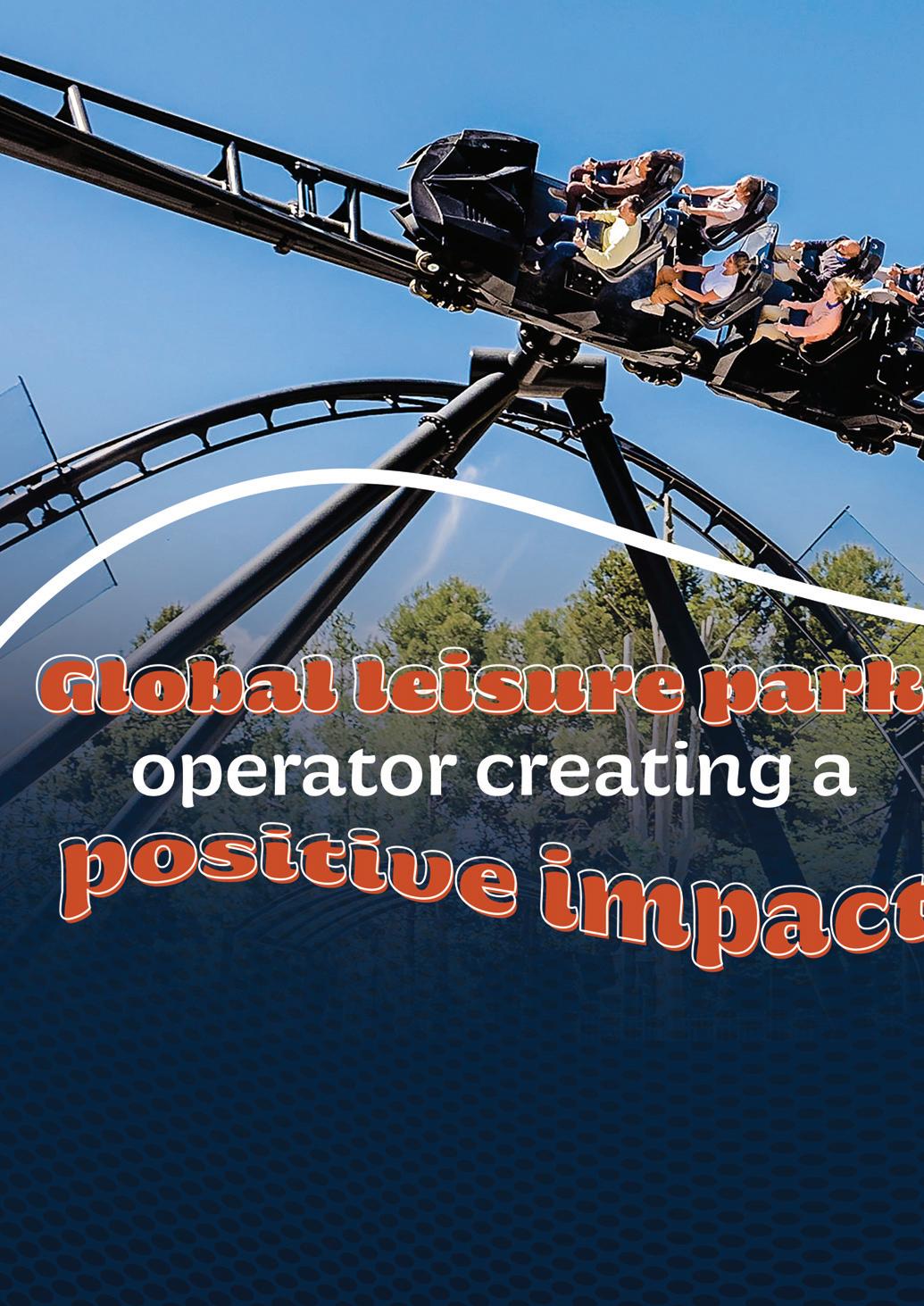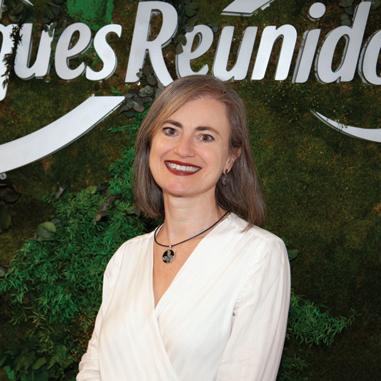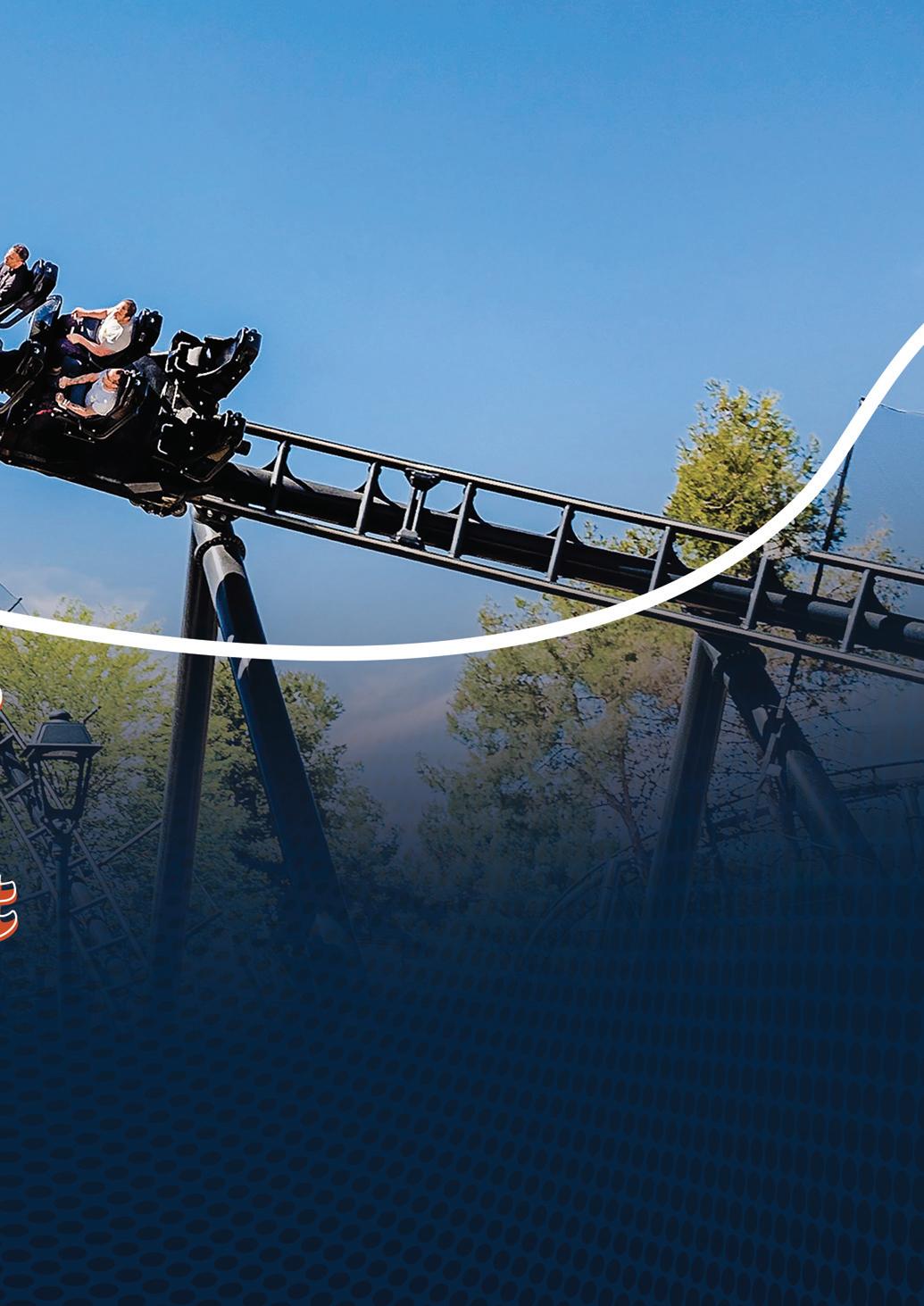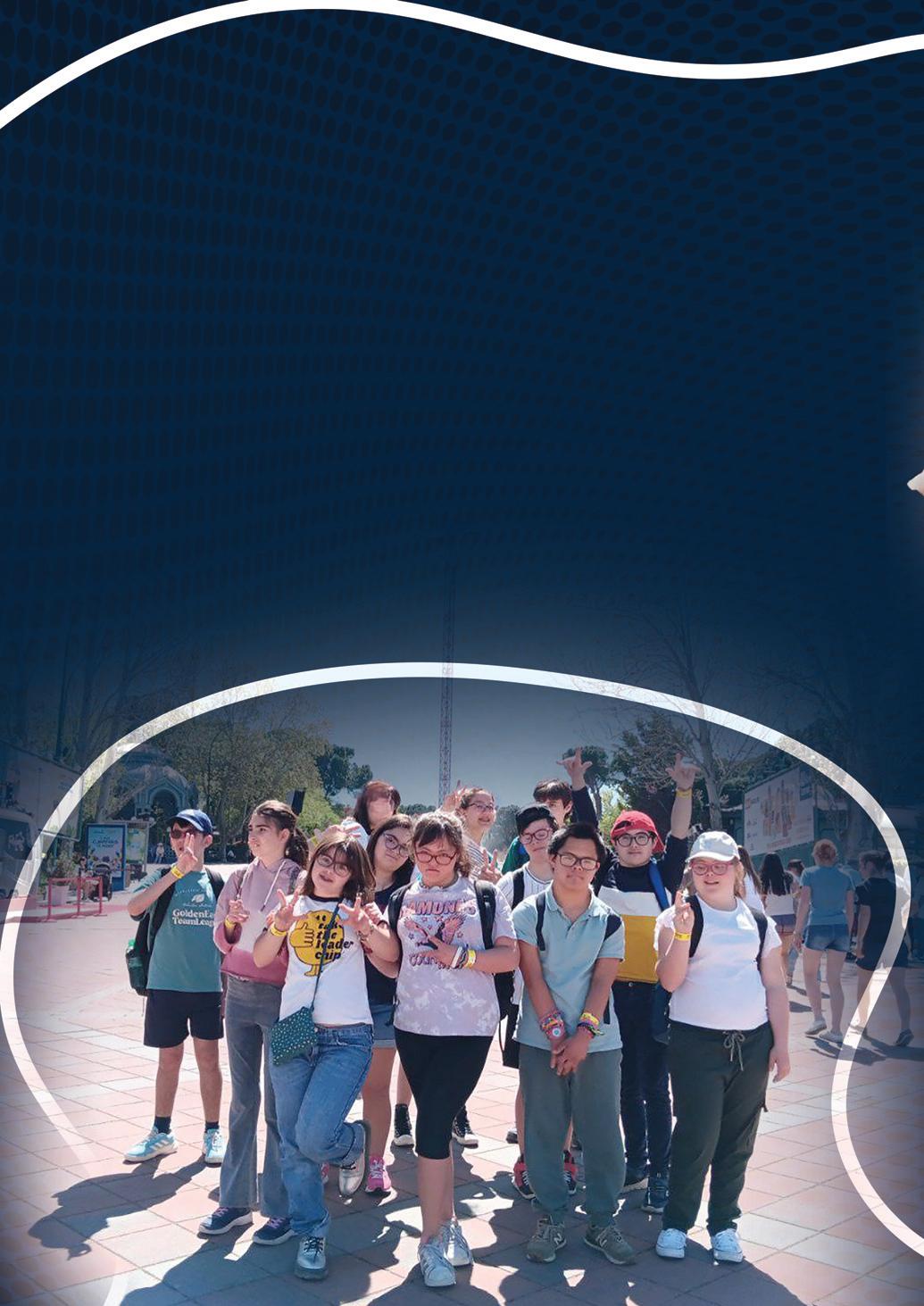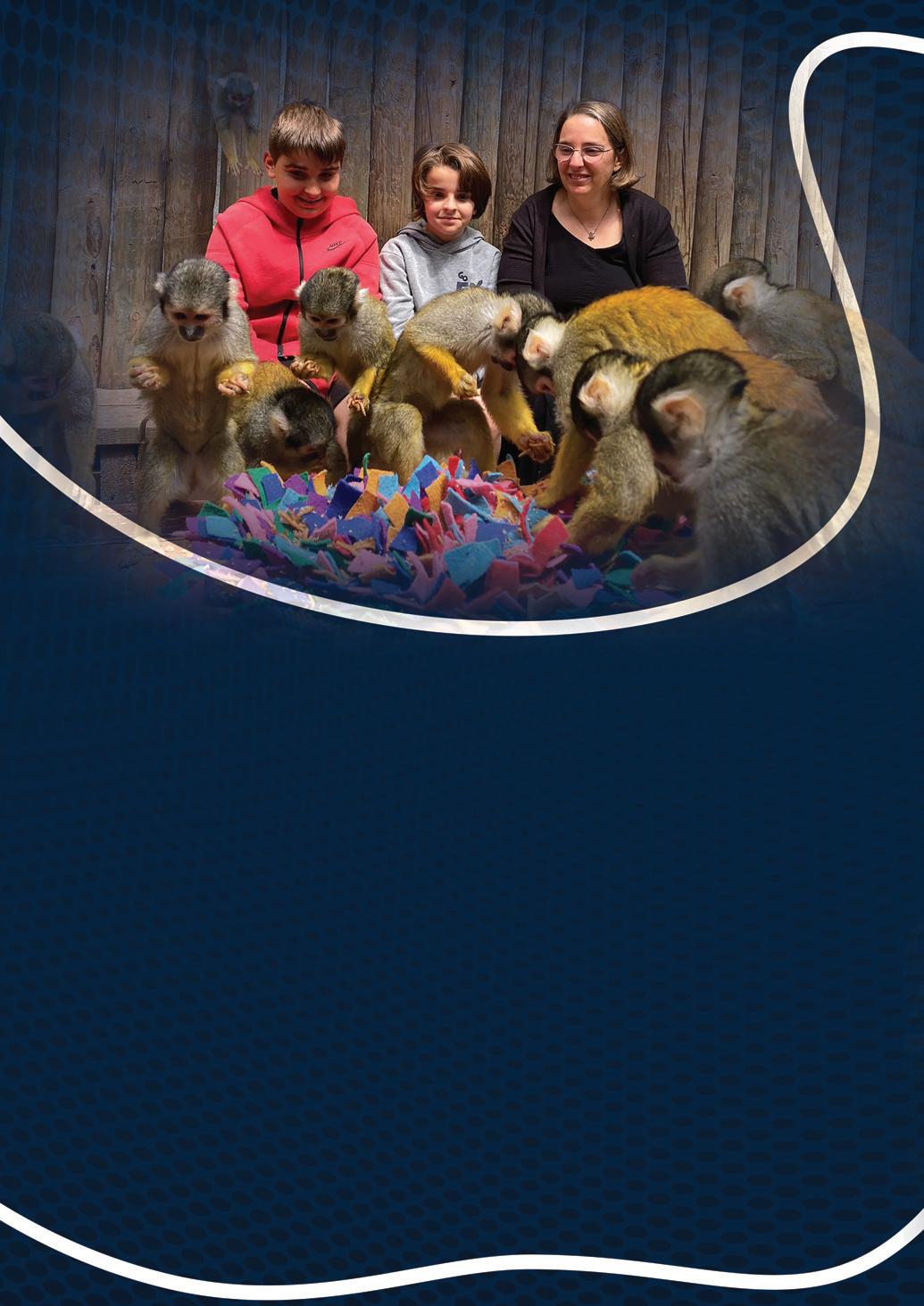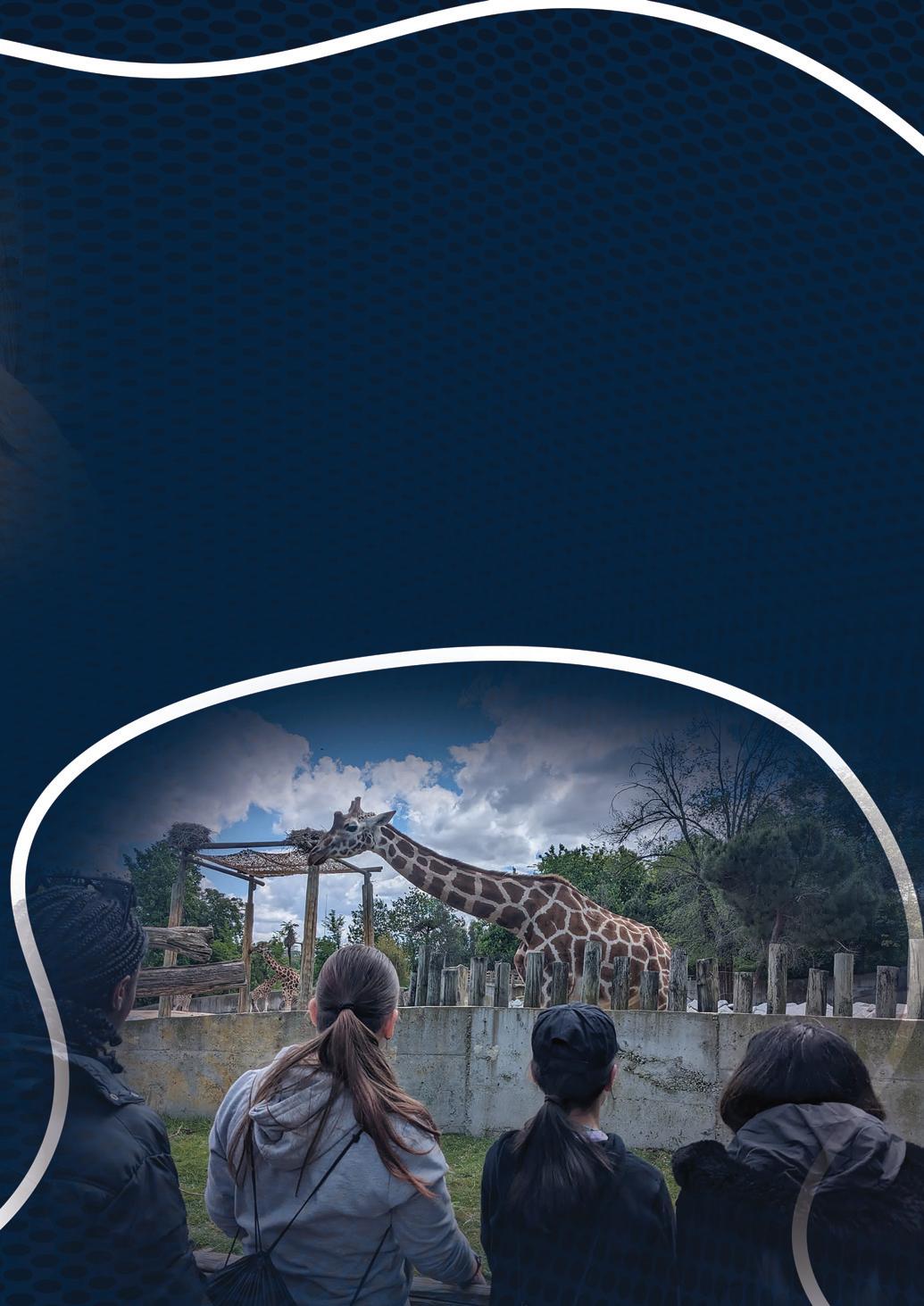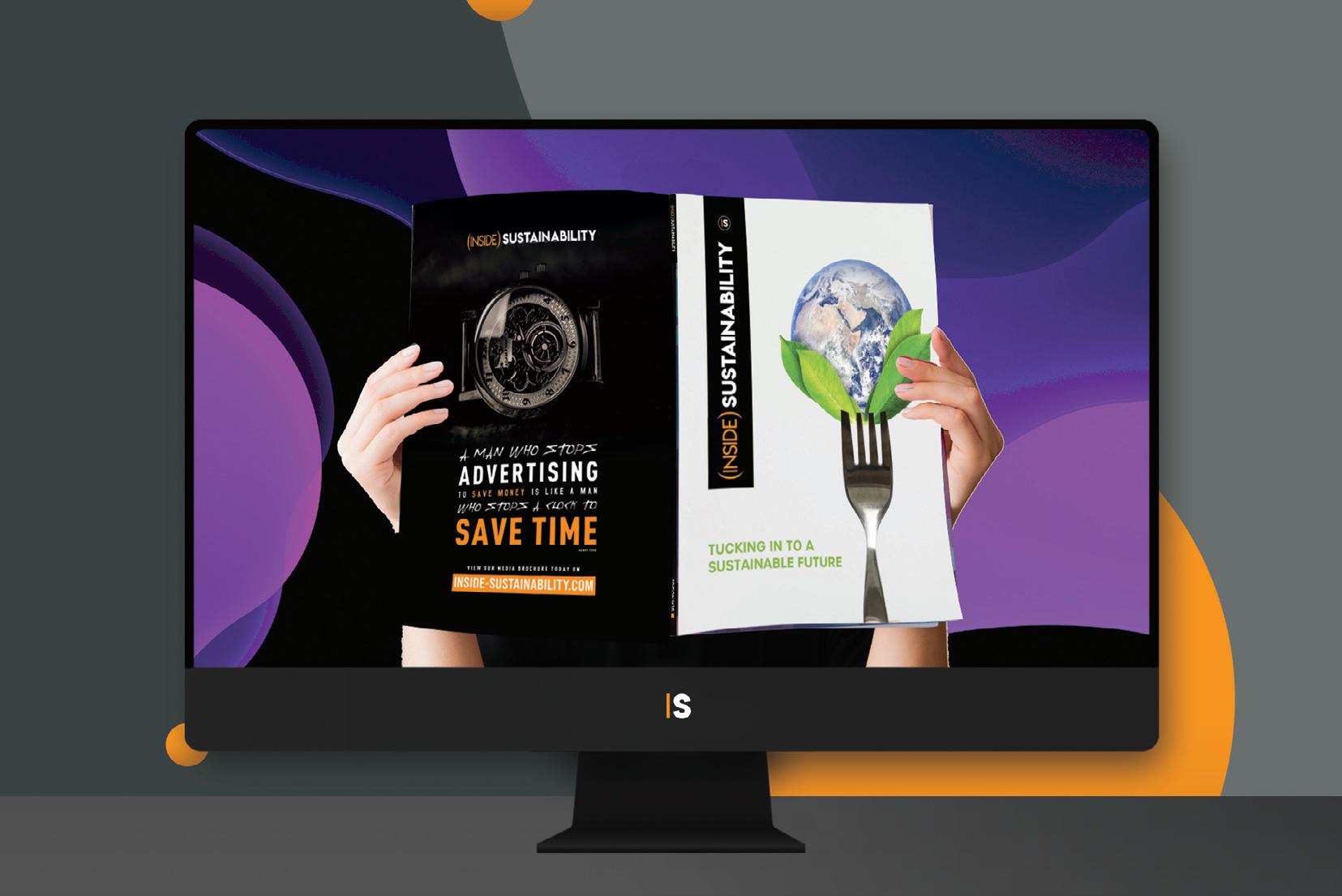ChiefSustainabilityandHSE
Translated from Spanish, Parques Reunidos literally means ‘reunited parks.’ The name is appropriate for an organisation that boasts such a diversity of assets, from theme parks, zoos and aquariums to water parks, indoor entertainment centres and cable cars.
Though it may be a large organisation with many moving parts, when it comes to implementing substantial sustainable change, Parques Reunidos is nimble and effective.
“I think organisations in general spend too much time talking about sustainability and not enough time acting,” said Isidora Díaz Heredia, Chief Sustainability and HSE
Officer. “We need to start moving in a much more proactive way. None of us alone can solve all the social or environmental issues that the world is facing today. But each of us in our professional and personal lives can do something to combat these challenges.”
An atmosphere of change
The company started its sustainability journey in 2020. The approach has been a holistic one – taking in a full breadth of Environmental, Social and Governance measures across the whole portfolio.
With 19.3 million visitors in 2023 and over €830 million in revenue, a wide scope of activity falls under the Parques Reunidos
Officer Isidora Díaz Heredia
PARQUES REUNIDOS I PROFILE
umbrella. The company has an average of 10,000 employees, but as a seasonal operation this may reach nearly 18,000 in peak season. The range of regional parks across 11 countries makes it an exceptionally resilient operation, but there is no one-size-fits-all when it comes to sustainable policy.
“It’s important to understand that we operate in different segments,” explained Ms Díaz. “We have theme parks, water parks, zoos and aquariums, and family entertainment centres; each of them has different challenges but we set minimum requirements. For example, we committed to a joint CO2 emission reduction target for Scope 1 and 2 of 87.9 per cent, and
another reduction target for Scope 3 of 27.5 per cent, taking 2019 as base year and 2030 as the target year. Of course, this is something that cannot be achieved without the contribution of each park. But we are focusing our actions on the parks with higher energy consumption, the indoor ones especially.”
Though much of the leisure sector is now moving quickly to implement sustainable measures, Parques Reunidos wants to be ahead of the game. The company now derives 100% of its electricity from renewable sources, something it committed to in 2020 and achieved a year later. In June 2023, it became the first international regional leisure park operator to have
its emissions targets validated by the Science Based Targets initiative.
“I feel particularly proud of that,” said Ms Díaz. “We have established a clear commitment to reduce our scope 1, 2 and 3 emissions from 2019 levels and we are forging a clear path in the industry to achieve it.
“Since I joined the company in May 2018, there has been a huge transformation. Now, we are standardising practices across all the sites, and we are trying to learn from each other and ensure that we effectively implement sustainability across the whole Group.”
Biodiversity not adversity
Zoos and aquariums form a key part of Parques Reunidos’ offering, and of it its sustainability strategy. The company strives to emphasise that animal welfare
is somehow equivalent to employee health and safety. “In the same way that we provide good working conditions for our employees,” Ms Díaz said, “we have an animal welfare improvement programme to provide good living condition for the animals under our care.”
Zoos and aquariums also play an important role when it comes to conservation of biodiversity. “There are several species that would be very low in population without the contribution of zoos and aquariums,” continued Ms Díaz. “This is something that has been recognised by the International Union for Conservation of Nature.”
“Sustainability is not only about reducing negative impact, but also about maximising positive impact and developing opportunities, to contribute to a better future for all. When I look at everything that is achieved
PARQUES REUNIDOS I
at our zoos and aquariums, I feel really proud of our teams.”
Parques Reunidos is also keen on spreading the message of sustainability through educational initiatives at its parks. These include raising awareness on biodiversity conservation and other environmental challenges, as well as on social inclusion and accessibility.
“Education is key for us,” Ms Díaz said. “In October, some of the parks are developing topics for Halloween events that are ‘scary,’ because climate change is scary. Again, this is part of the positive impact that we can create.”
Forging connections
The company is keen to further improve its social sustainability by ways of policies focused on diversity, equity and inclusion. Subjects like health and safety for guests
and workers has been always part of the Parques Reunidos DNA.
“We also want to promote inclusion not only from an accessibility point of view, but also a socio-economic one,” Ms Díaz explained. “This means giving opportunities to communities that might not be able to afford to visit a theme park usually. We are partnering with several associations from the local community to promote a more sustainable and inclusive leisure.
“I am passionate about doing things that create a positive impact. We will not solve all the problems in the world, but if we can provide the opportunity to send a child from our community to one of our parks who otherwise would not be able to, I say this is a positive contribution.”
The 2025 and 2030 targets, which included, amongst others, the reduction of CO2 emissions, increasing women in
management positions and improving accessibility for guests, are to be reviewed this year. Updated ones are set to be published in 2025.
“We have already achieved some of our targets,” said Ms Díaz. “But it’s not our style to say: ‘Okay, we did it, now we can relax.’ We need to continue putting new objectives in place.
“I think the main challenge when it comes to sustainability, is the need to balance short- and long-term priorities. We are a seasonal business and sometimes, from a business point of view, we need to take short-term measures. Sustainability
is not a sprint but a marathon. What I am doing today affects the future.”
Within the diverse sustainable milieu, Ms Díaz sees her own role as one largely about forging connections. It is certainly something that keeps the job interesting.
“I like to connect data,” she concluded. “Sustainability is not all about data, but it certainly starts there. Then I also like to connect people and to make things happen. It is vital and it needs to be done. Sustainability is not what happens in my office, it is made real by the actions of each team member, business partner, supplier and guest.” n
